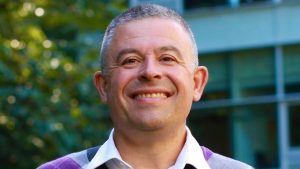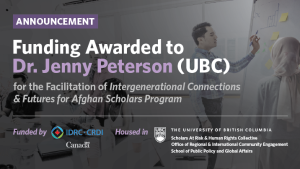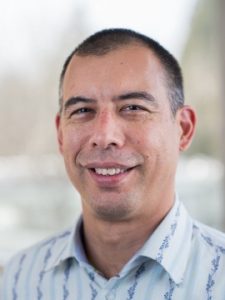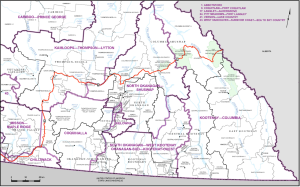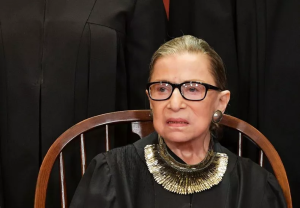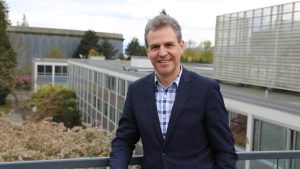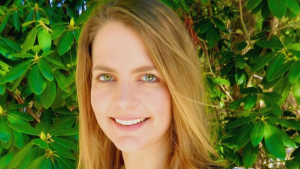Prof. Yves Tiberghien comments on the implications of Huawei, ZTE ban in Canada
The recent Huawei and ZTE bans could further strain the Chinese-Canadian relationship, both politically and economically. “There have been signals that this decision has been coming for years,” Prof. Tiberghien said. “This will not be a shock to the system. If anything it will be a ripple in the bigger picture.”
PhD Candidate Martina Zago receives SSHRC funding for project investigating historical European definitions of “civilization”
Martina’s dissertation explores European debates over civilization, barbarism, and savagery in relation to extra-European states and peoples during the age of ‘modern Orientalism,’ 1798-1945. She argues some of the most interesting meaning-makers in this context were visual artists who took to heart the task of defining and contesting the boundaries of what was then considered civilized, barbarous, and savage.
Prof. Jenny Peterson awarded funding for Intergenerational Connections & Futures for Afghan Scholars Program
Part of the $1.096 million dollar grant from the International Development Research Centre will go towards connecting Afghan students with Afghan scholars and activists to discuss possible ‘pathways’ for a socio-politically forward looking Afghanistan through Dr. Jenny Peterson’s “Intergenerational Connections and Futures” project.
Prof. Allen Sens hopes Trudeau’s visit to Ukraine goes beyond the symbolic
Additional military equipment assistance, financial assistance for eventual reconstruction, negotiations for an end to the war, and possible declaration of Russian republics within Ukraine could have been at the top of Trudeau and Zelenskyy’s agenda, says Prof. Allen Sens. However, banning Russian oil is still a sticking point.
Prof. Sheryl Lightfoot joins group on truth, reconciliation and justice in UN Permanent Forum on Indigenous Issues
Along with other Indigenous members of the United Nations Expert Mechanism on the Rights of Indigenous Peoples, Professor Sheryl Lightfoot will work in post-conflict areas for lasting peace that respects the rights of Indigenous Peoples and promotes their full and effective inclusion.
Prof. Allen Sens says that Victory Day could impact Russia’s next steps in the invasion of Ukraine
“Victory Day… had a large impact on the Soviet Union and still resonates very strongly today with may Russians,” says Professor Allen Sens. He explains how Victory Day could lead to Russia proclaiming either victory or escalation, and the impact of the West on this invasion.
Prof. Gerald Baier weighs in on addition of new Okanagan federal election districts
“I wouldn’t call it just an extra riding for the Interior or the Okanagan,” says Professor Gerald Baier. “It’s a big jigsaw puzzle, but it’s not just an additional Conservative seat, as some are suggesting—it doesn’t work that way.”
Prof. Paul Quirk on overturning Roe v. Wade: “one of the greatest policy disasters for the Democratic Party in many years”
Professor Paul Quirk says Justice Ruth Bader Ginsburg failure to retire during Obama’s term contributed to the overturning of Roe v. Wade.
Watch: Roland Paris present the 2022 Mark Zacher Distinguished Speaker Lecture
We were honoured to host Roland Paris as the 2022 Mark Zacher Distinguished Speaker last week. He presented a talk exploring the consequences of Russia’s invasion of Ukraine and what it means for the post-Cold War international order.
Scope Conditions Episode 2.8: Social Media and Authoritarian Regimes with Prof. Alexandra Siegel
UBC Professors Alan Jacobs and Yang-Yang Zhou discuss the nuanced relationship between social media and authoritarian regimes with University of Colorado Boulder Assistant Professor Alexandra Siegel in the latest episode of Scope Conditions.
